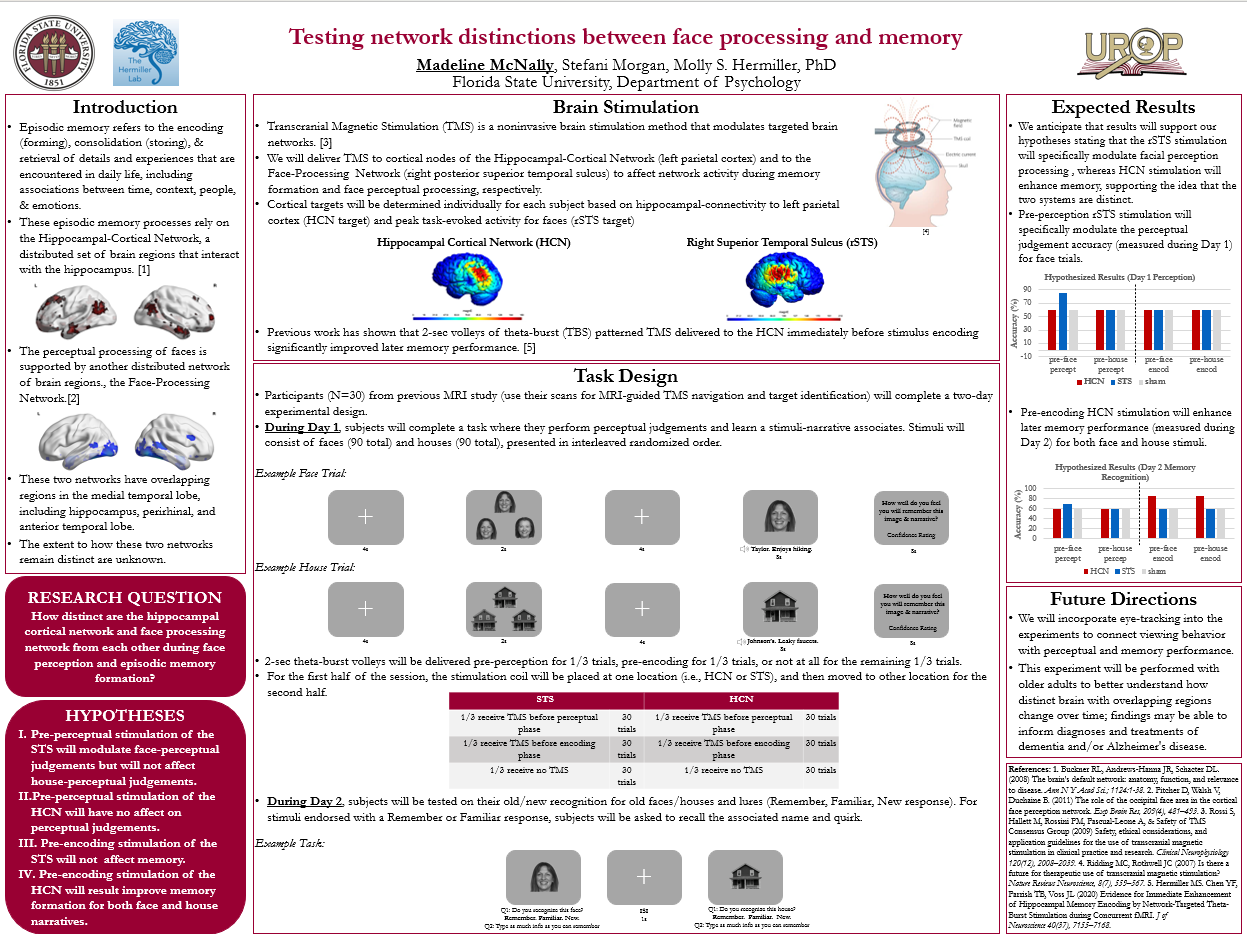Research Symposium
24th annual Undergraduate Research Symposium, April 3, 2024
Madeline McNally Poster Session 3: 1:30 pm - 2:30 pm /339

BIO
I am a current sophomore majoring in Cell and Molecular Neuroscience. As a UROP student, my research project was conducted in the Hermiller Memory Lab. My future career aspirations include attending medical school and specializing in neurology.
Testing network distinctions between face processing and memory
Authors: Madeline McNally, Molly S. HermillerStudent Major: Cell and Molecular Neuroscience
Mentor: Molly S. Hermiller
Mentor's Department: Department of Psychology Mentor's College: College of Arts and Sciences Co-Presenters:
Abstract
Episodic memory refers to the ability to form and recall memories, including contextual/spatial details specific to daily events. The hippocampal-cortical network (HCN) is a series of brain regions that interact with the hippocampus to support episodic memory processes. Regions in the HCN medial temporal lobe overlap with the face-processing network (FPN), involved with perceiving/recognizing faces. The extent to which the FPN and HCN are distinct during face perception versus episodic memory encoding, despite overlapping hippocampal and medial temporal lobe regions, is unknown. Of note, are the different cortical areas involved with each network, with left parietal cortex engaged with the HCN and right superior temporal sulcus (rSTS) involved specifically with face-processing. In this study, we use noninvasive brain stimulation (transcranial magnetic stimulation, TMS) to selectively modulate the HCN (left parietal cortex) or FPN (rSTS) to causally test their roles in memory versus face perception. Our task includes a perceptual judgment phase (house/face stimuli) and encoding phase (house/face stimuli). TMS is delivered in a trial-specific manner to influence either perceptual judgements or memory formation. We hypothesize that TMS to the rSTS will selectively influence perceptual judgments of the face but not house stimuli, as the rSTS has been shown to be specifically involved with face perception. We expect that TMS to the HCN will enhance memory for both faces and houses, as the memory network is not stimuli-specific. Results from this study will increase our understanding of the roles the HCN and FPN have in supporting distinct cognitive processes.
Keywords: Neuroscience, Episodic Memory, Face Processing, Perception, TMS


